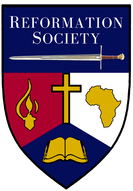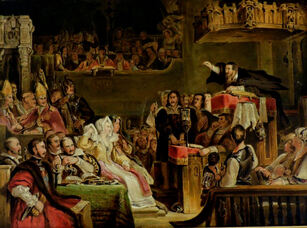 “If I had a place to stand, I could move the world.” The Greek engineer Archimedes was referring to the wonders of the lever. In principle, the capacity of a lever was unlimited. An ordinary weakling could move a rock the size of a house. All that he would need would be a fulcrum, a pole strong enough so that it would not break, and long enough to multiply the force. That, and a place to stand. The force multiplying physics of the lever are a function of distance. The heavier the object, or the weaker the person trying to move it, the longer the pole would need to be, and the further away from it you would have to stand. However, with the right fulcrum, the right bar and the right distance, all you would need to do would be to push the lever down, and the boulder, no matter how heavy it was, would move. Theoretically, Archimedes famously declared, with the right fulcrum, bar and distance, you could put a lever to planet Earth and move the world itself. As long as you had a place to stand! On 18 April 1521, a 37-year old Professor from the University of Wittenberg found himself hauled in front of the Emperor of the Holy Roman Empire. Standing before the assembled political and spiritual authorities of his day, Luther was presented with a simple choice: Will you recant, and reject everything you have been teaching about the Gospel? Or will you be cast out of the church and state as a heretic and traitor, to be burned at the stake? Martin Luther’s reply moved the world. He changed history. Because he had a place to stand. Dr. Martin Luther declared: “My conscience is captive to the Word of God. Here I stand!” Our Lord Jesus declared that our Faith would be able to move mountains (Matthew 17:20). Martin Luther’s Faith moved the world because he had a place to stand. He stood on the Word of God. The fulcrum he used was the Gospel. This was balanced on the bar of the Law of God. Luther’s biographer Martin Brecht pointed out that in fact Martin Luther had fulfilled what the Greek engineer Archimedes had hypothesized about. Standing on the Word of God, using the bar of the Law of God and the fulcrum of the Gospel, Martin Luther’s Faith had not only moved mountains, it changed the world. It brought to an end the Middle Ages, and ushered in the modern world. The Protestant Reformation, and the resultant Scientific Revolution and Industrial Revolution, produced the most productive, prosperous and free nations in the history of the world. All this because Luther had a place to stand and he made his stand on the unchangeable Word of Almighty God.
0 Comments
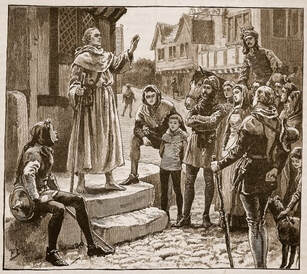 Peter Waldo was a wealthy merchant, well respected and a man of influence, in the community of Lyons. One evening, while entertaining friends at his home, one of them suffered a sudden seizure and died. This incident so shook Waldo that he began to seriously think of his soul and eternity beyond the grave. He began to regularly attend church services, but was not satisfied with the superficial rituals in Latin. He employed two priests to come to his house to translate the Gospels of Christ into French. Waldo was most excited as he read, meditated on and carefully studied the Words of Christ. Yet, instead of comfort and peace, he found conviction and challenge. He saw himself as the foolish rich man who was laying up treasures on earth, but was spiritually poor towards God. Again and again he read the Words of Christ: “Take heed and beware of covetousness, for the abundance of a man’s life consisteth not in those things which he possesseth” Luke 12:15. 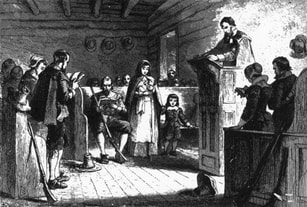 The Puritans bequeathed to us a heritage of pastoral theology unsurpassed in the history of the English-speaking church. The Puritans modelled a pattern of ministry that was both plainly Biblical and intensely devotional. The Puritans managed to balance head and heart, doctrine and devotion. Puritan theology (defined as Biblical, Evangelical and Reformed theology) served for more than three centuries as the basic doctrinal framework for Evangelicalism, throughout the Protestant world, including Baptist, Congregational, Independent, Anglican and Presbyterian traditions. The Puritans were convinced that Biblical theology and doctrinal truth were essential for healthy Christian experience and service. They insisted that the saving knowledge of God is essential for Christian living. This means that we need to know God personally and learn more about Him through His Word. What we believe affects how we live. Bad theology leads to bad practice. “It is impossible to honour God as we ought, unless we know Him as He is.” The fundamental idea of Puritanism was the supreme authority of Scripture and it expressed itself in a fervent dedication to the cause of civil freedom. 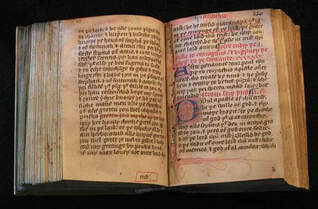 Did you know that the first English translations of the Bible were banned? That the first printed copies of the New Testament in English had to be printed in Germany and smuggled into England in bales of cotton? Did you know that the Bible translator responsible for this was burned at the stake for the crime of translating the Scriptures into English? Bishop Stephen Bradley observed: “We are in danger of forgetting truths for which previous generations gave their lives.” That our churches are in danger of forgetting the great Reformation truths, for which previous generations of martyrs willingly laid down their lives, was forcefully impressed upon me during a ministry trip to Europe. I had the opportunity to visit Oxford and see the Martyrs Memorial. It drew my attention to an event that occurred 450 years before. 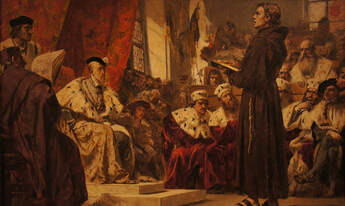 The Reformation in Europe during the 16th century was one of the most important epochs in the history of the world. The Reformation gave us the Bible now freely available in our own languages. The now almost universally acknowledged principles of religious freedom, liberty of conscience, the rule of law, separation of powers and constitutionally limited Republics were unthinkable before the Reformation. The Reformers fought for the principles that Scripture alone is our final authority, Christ alone is the head of the Church and justification is by God's grace alone, on the basis of the finished work of Christ, received by faith alone. Few people today realise that the first Bibles printed into English had to be smuggled into England, and that the Bible translator, William Tyndale, was burnt at the stake for the crime of translating the Bible into English. 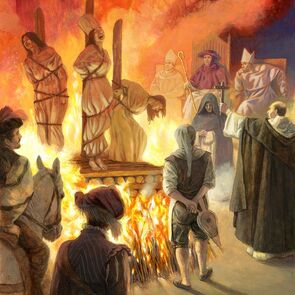
The extra-ordinary attempt by US president Barak Hussein Obama to deflect attention from violent Islamic Jihad by condemning the Inquisition as 'evil done in the Name of Jesus Christ', should make us take a fresh look at the Inquisition:
One of the re-occurring accusations against Christianity is that Christians are responsible for: "The Inquisition!" Frequently, while trying to love one's neighbour and share the Gospel of our Lord Jesus Christ, Christians receive some tirade against "The Church" and "The Inquisition!" The Inquisition is used as some kind of general-purpose club with which to bludgeon Evangelical Christians. On one occasion while I was being interviewed on a national secular radio programme, on the publication of my book: Biblical Principles for Africa, the first caller attacked me, and my book, over something that the book doesn't even deal with - she claimed that Christians were responsible for 'the Inquisition' which 'burned thousands of witches!' 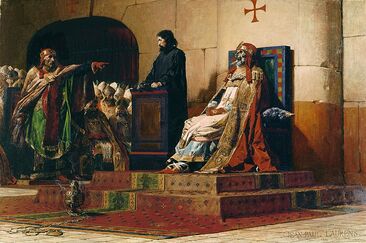 "Watch out for false prophets. They come to you in sheep's clothing, but inwardly they are ferocious wolves. By their fruit you will recognise them." Matthew 7:15-16 CORRUPTION STEPHEN VII (896-897AD) "He dug up a Corsican predecessor, Pope Formosus (891-896), when he had been dead for over nine months. He dressed the stinking corpse in full pontificals, placed him on the throne in the Lateran and proceeded to interrogate him personally. After being found guilty, the corpse was condemned as an anti-pope, stripped and minus the two fingers with which he had given his fake apostolic blessing, was thrown into the Tiber." (Vicars of Christ - the Dark Side of the Papacy by Father Peter de Rosa). 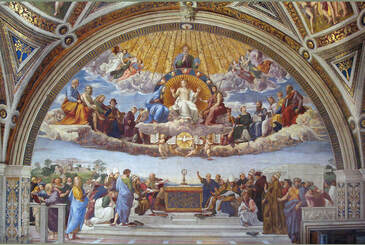 Reformation Day Events To see upcoming Reformation Day Celebration events, click here. You can also view upcoming events on Reformation 500 Facebook page, please like and share on social media. For more details, phone: 021-689-4480, or e-mail [email protected]. Unprecedented Western civilisation has been blessed with the greatest freedom, productivity and prosperity ever known in history. The liberty, standards of justice and creativity enjoyed in Western civilisation is a direct result of the Protestant Reformation of the 16th Century. First Things First Our Lord Jesus Christ taught: "But seek first the Kingdom of God and His righteousness and all these things shall be added to you." Matthew 6:33 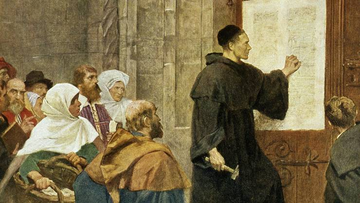 In the book of Judges we read about another generation, which arose, which knew neither the Lord nor what He had done (Judges 2:10). Today, it appears that a generation has arisen, which like Israel under the Judges, knows little of either the Lord nor of what He did during the time of the Protestant exodus and the struggles in the wilderness, which followed in the 16th and 17th century. Sometimes this is from a cowardly dislike of controversy and confrontation. But few people seem to understand either the evils from which the Reformation delivered us or the blessings, which the Reformation won for us. THE REFORMATION DELIVERED THE CHURCH FROM GROSS IGNORANCE AND SPIRITUAL DARKNESS The church, before the Reformation, was a church without the Bible. And a church without a Bible is as useless as a lighthouse without light, a candlestick without a candle, or a motor vehicle without an engine. The priests and people knew scarcely anything about God's Word or the way of salvation in Christ. |
History ArticlesCategories
All
Archives
May 2023
|
- Home
-
History Articles
- History Articles
- All Categories
- Character Studies
- Greatest Century of Missions
- Greatest Century of Reformation
- Reformation In Bohemia
- Reformation In England
- Reformation In France
- Reformation In Geneva
- Reformation In Germany
- Reformation In Italy
- Reformation In Scotland
- Reformation in Switzerland
- Victorious Christians
- Contemporary Articles
- Resources
- Contact
- Donate
|
The Reformation Society
PO Box 74, Newlands, 7725, South Africa Tel : (021) 689-4480 Email: [email protected] Copyright © 2022 ReformationSA.org. All rights reserved |
- Home
-
History Articles
- History Articles
- All Categories
- Character Studies
- Greatest Century of Missions
- Greatest Century of Reformation
- Reformation In Bohemia
- Reformation In England
- Reformation In France
- Reformation In Geneva
- Reformation In Germany
- Reformation In Italy
- Reformation In Scotland
- Reformation in Switzerland
- Victorious Christians
- Contemporary Articles
- Resources
- Contact
- Donate
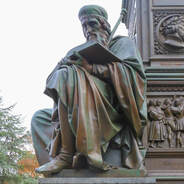
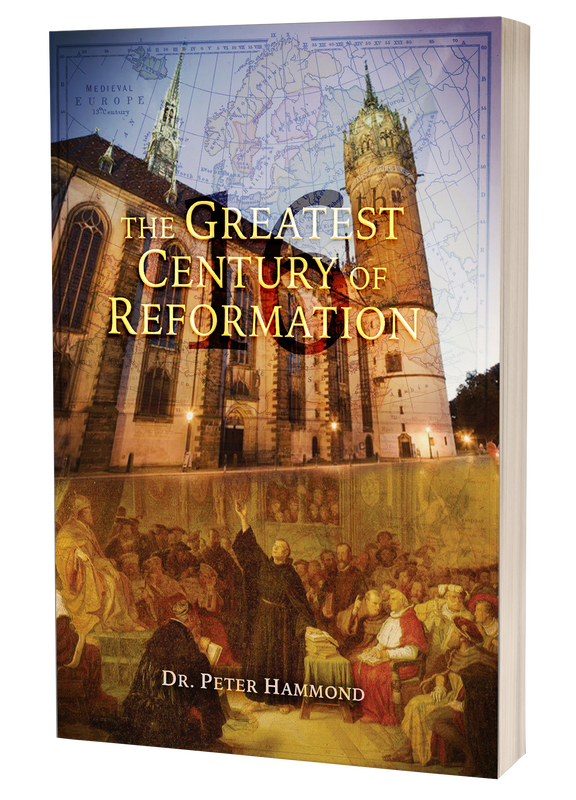
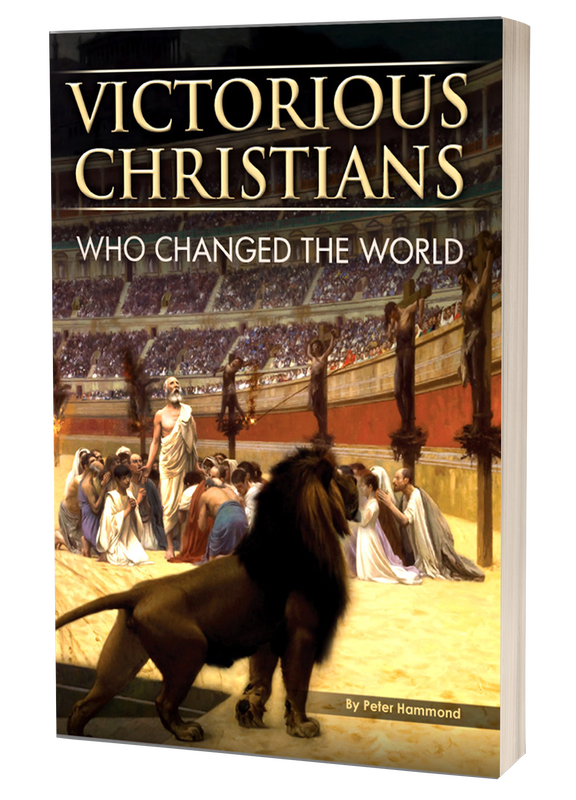
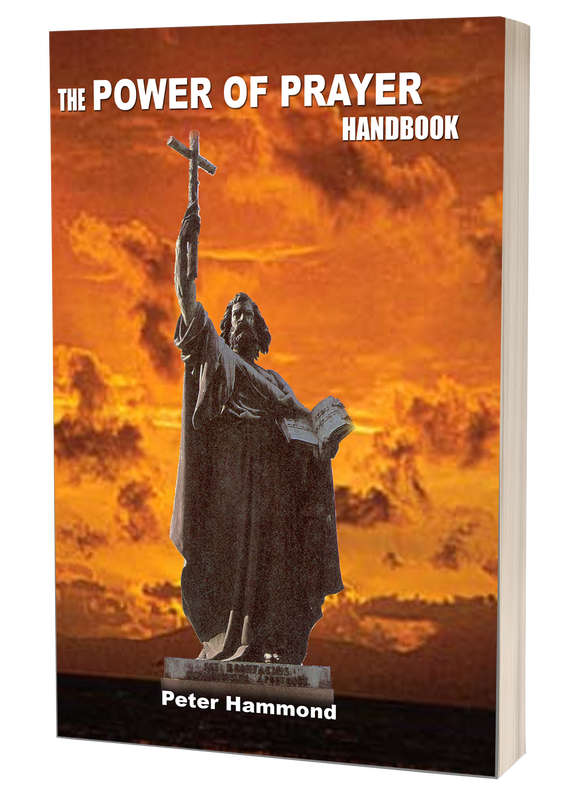
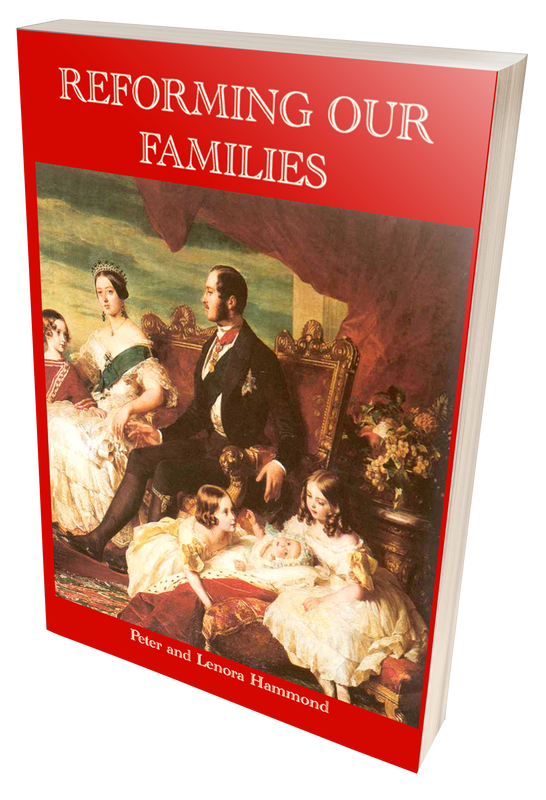
 RSS Feed
RSS Feed
